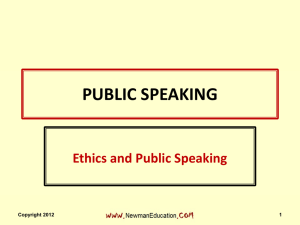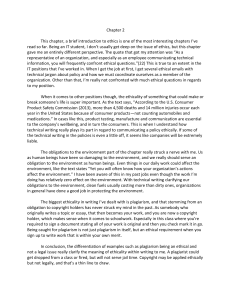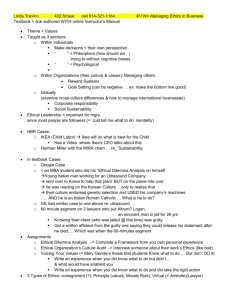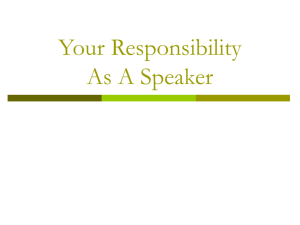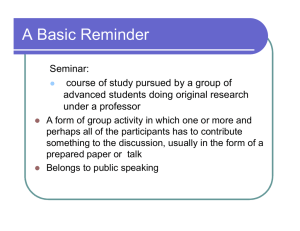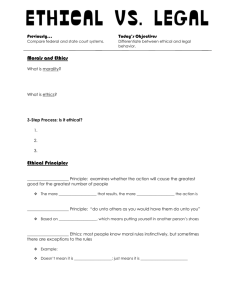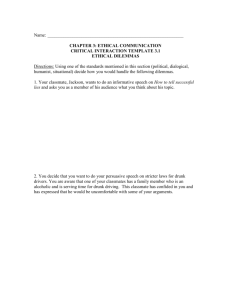Core Values #2
advertisement
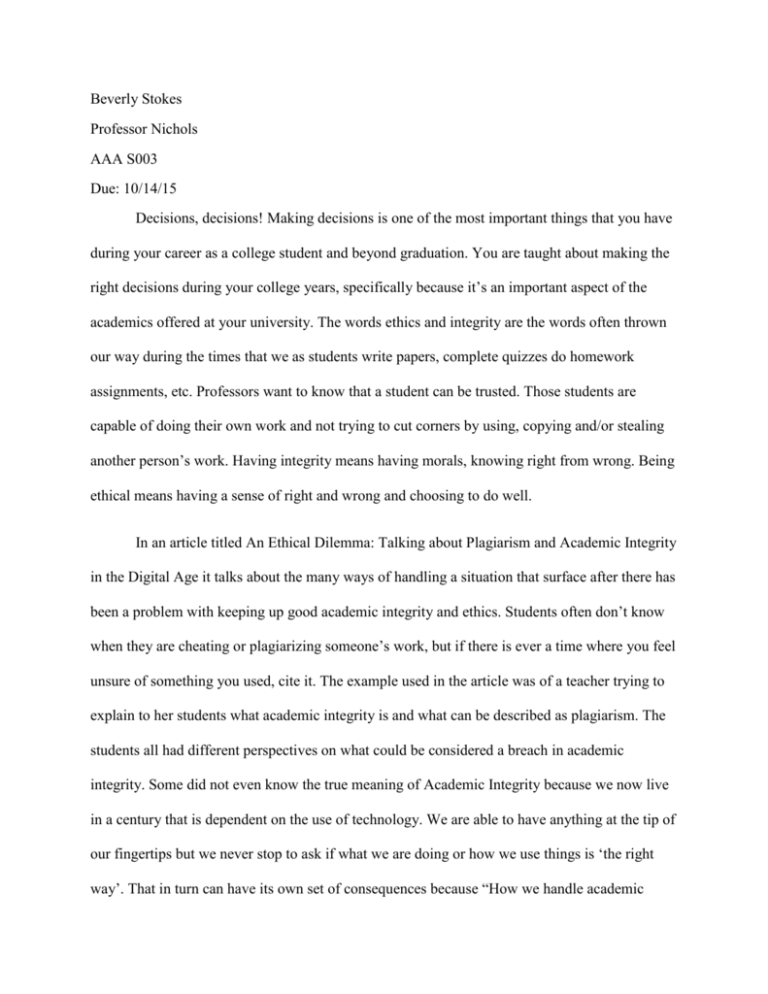
Beverly Stokes Professor Nichols AAA S003 Due: 10/14/15 Decisions, decisions! Making decisions is one of the most important things that you have during your career as a college student and beyond graduation. You are taught about making the right decisions during your college years, specifically because it’s an important aspect of the academics offered at your university. The words ethics and integrity are the words often thrown our way during the times that we as students write papers, complete quizzes do homework assignments, etc. Professors want to know that a student can be trusted. Those students are capable of doing their own work and not trying to cut corners by using, copying and/or stealing another person’s work. Having integrity means having morals, knowing right from wrong. Being ethical means having a sense of right and wrong and choosing to do well. In an article titled An Ethical Dilemma: Talking about Plagiarism and Academic Integrity in the Digital Age it talks about the many ways of handling a situation that surface after there has been a problem with keeping up good academic integrity and ethics. Students often don’t know when they are cheating or plagiarizing someone’s work, but if there is ever a time where you feel unsure of something you used, cite it. The example used in the article was of a teacher trying to explain to her students what academic integrity is and what can be described as plagiarism. The students all had different perspectives on what could be considered a breach in academic integrity. Some did not even know the true meaning of Academic Integrity because we now live in a century that is dependent on the use of technology. We are able to have anything at the tip of our fingertips but we never stop to ask if what we are doing or how we use things is ‘the right way’. That in turn can have its own set of consequences because “How we handle academic integrity with our students has implications beyond our individual classrooms” (Thomas and Sassi). Having integrity and good ethical exceeds a lot of things, so if students do not have that balance of the two they fail to learn what “is highly contested and often politicized.” (Thomas and Sassi). Students that are taught are able to take what they learn outside of the classroom. Citation: Sassi, Kelly, and Ebony Elizabeth Thomas. “An Ethical Dilemma: Talking about Plagiarism and Academic Integrity in the Digital Age.” English Journal 100.6 (2011): 47-53. Print.
